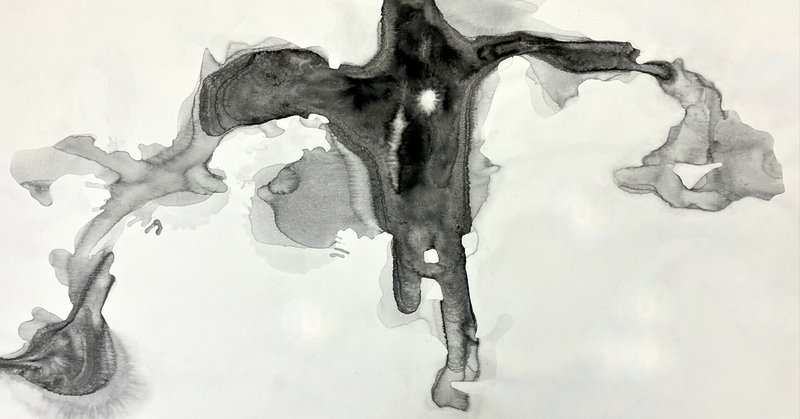
ウィトゲンシュタインは言語の限界が世界の限界だと言った。
かつてウィトゲンシュタインは「言語の限界が世界の限界だ」と言った。私たちは言語によってものを考える以上、 その思考は言語によって制約される。言語の限界が認識の限界となる。
日本語と英語の違い

海外でワークショップをする時、「腰を落として」とか「腰を使って」とか、説明の中で「腰」という言葉を頻繁に使う。だが日本語の「腰」にぴたりと当てはまる英語が見当たらない。”waist” や “hip” ではピタリと来ない。 "back" は腰を含めた背中全体を指すのでこれもいま一つ。総じて西欧には「腰」を特定する語が乏しく、日本語ほど「腰」という部位に重きを置いていないことが分かる。
一方、”美術館” ≒ ”museum” になると話は逆転する。日本の美術館は博物館法に依ってはいるが、絵画や彫刻などが展示されている専用の施設は広く美術館と名付けられている。だが ”museum” は違う。言葉の使われ方はもっと厳密で、収蔵作品を持たなければ ”museum” とは言えない。たとえば、東京・六本木にある新国立美術館。ここには収蔵品がない。だから英語の呼称は ”The National Art Center, Tokyo” となっている。”museum” ではなく "Art Center” なのだ。
単語だけではない。言語構造の違いもある。英語をはじめ多くの言語はそれが肯定文なのか、否定文なのか、疑問文なのか文頭から分かるが、日本語は文末まで来ないとわからない。英語は主語を立てることが必須だが、日本語では主語を言わないことも多い。誰が何をするのか、しないのかをまず直裁的に語る英語に比べると、日本語はもっと婉曲的で最後まで曖昧さを残す。
確かに英語で話している時、考え方や行動がより単刀直入になっているように思う。個人として他者に向かって何かを発信する時、英語には強い推進力がある。一方、集団の中で協調しながら他者との関係性を築く時、日本語は有効な言語だ。
「自然」 「自由」という概念
ここで ”Nature≒自然” という言葉を考えてみる。西洋の “Nature” は “Human" に対する相対的な概念として存在する。そこでは主体である人と客体である自然が対峙し、自然は人によって制御される対象となる。一方東洋の “自然" は、もともと人を含めた万物全体を示しており、人も自然の一部とみなされる。環境配慮行動について言えば、この定義の違いは西洋の「自然を守る」に対して、東洋の「自然に還る」の違いとなって表れる。

次に ”Freedom”≒”自由”という言葉。西洋の ”Freedom” という言葉は束縛や抑圧からの解放を意味する。そこには主体である自己と、客体である外界が対峙するという二元論が前提にある。”Freedom” は自己が外界に何ら縛られていない状態を示す。一方、東洋の’自由’とは「自らに由る」、すなわち自分の心のまま、ありのままに生きることを指す。つまり ”Freedom” は手に入れるべき、あるいは守るべき対象であり、一方の ”自由” は自身の生き方そのものに関わる概念となる。
近代社会は人をかつての身分や家業の縛りから解放していった。”freedom” を手にした市民は桎梏から解き放たれたが、今度はどう生きるかという ”自由” の問題に直面することになった。サルトルは言う、「人は自由の刑に処せられている。 一度世界に放り出されると、人は自らすることすべてに責任があるからだ。 人生に意味を与えるのは自分次第だ。」

母国語でものを考える時、私たちはその母国語の構造や性能から制約を受ける。複数の言語を身に付けることが出来ればコミュニケションに役立つのはもちろん、自分の思考をもっと多様で柔軟に出来るのにといつも思っている。
Wittgenstein said, “The limits of my language mean the limits of my world.” Language shapes our thoughts, and each language conditions our perception. In other words, the limits of our language are the limits of our perception.
Deference between Japanese and English
When I do a workshop overseas, the word "koshi" (腰, "lower back") is used quite frequently in explanations - for instance, in expressions such as, "the lower back should be dropped" and "use your lower back". But a term which precisely expresses the Japanese word "koshi" is not easy to come up with in foreign languages. In English, it generally is translated as the word “back", but this word indicates the whole back, including the lower back. The words “waist” and “hip” don’t fit well either. A word to specify "lower back" was scarce in the West, and I learned that this part of the body is not considered as important there as it is in Japan.
On the other hand, the situation is reversed when it comes to "美術館"≒"museum". Although Japanese "美術館" are under the Museum Law, facilities specifically dedicated to the exhibition of paintings, sculptures and other artwork are widely called "美術館". However, "museum" is different. The usage of the word is more strict, and it cannot be called a "museum" unless it has a collection of artworks. For example, 新国立美術館 in Roppongi, Tokyo does not have any collection. That's why its English name is "The National Art Center, Tokyo" and not “New National Museum". It is referred to as an "Art Center" instead.
It's not just about words, there are differences in language structure as well. In English and many other languages, you can know from the beginning of a sentence whether it is affirmative, negative, or a question, but in Japanese, you won't know until you reach the end of the sentence. In English, it is essential to state the subject, but in Japanese, it is not rare to omit the subject. Compared to English, which straightforwardly describes "who does what or doesn't", Japanese is more indirect and leaves ambiguity until the end.
When speaking in English, I indeed feel that my thoughts and actions become more direct. English has a strong assertiveness when it comes to expressing something to others as an individual. On the other hand, when building relationships with others while collaborating within a group, Japanese is a more effective language to use.
“Nature” & “Freedom"
In Western culture, the word "Nature" exists as a concept that is relative to "Human". Here, “Human" is the subject and "Nature" is the object. Nature is seen as something to be controlled by humans.
By contrast, in Eastern culture, the word "Nature" (自然) refers to the whole of creation, including humans who are seen as a part of nature. When it comes to an action for environment, this difference in definition is reflected in the difference between "protecting nature" in the West and "returning to nature" in the East.

The Western concept of “Freedom" implies liberation from bondage or oppression. It is based on the assumption of duality between the subject (self) and the object (external world), indicating a state in which the self is not bound by anything external.
On the other hand, the Eastern concept of "freedom" ("jiyuu" in Japanese) refers to "being oneself" and living as one is, according to one's own heart. In other words, "freedom" is an object to be obtained or protected, while "jiyuu" is a concept that pertains to the way of life itself.
Modern society has liberated people from their former class or family business. Citizens who have obtained "freedom" are now faced with the issue of "jiyuu," or how to live. As Sartre said, "Man is condemned to be free. Once thrown into the world, he is responsible for everything that he does. It is up to him to give meaning to his life.”

When we think about things in our native language, we are constrained by the structure and capabilities of that language. I always think that being able to acquire multiple languages not only helps with communication, but also allows us to think more diversely and flexibly.
この記事が気に入ったらサポートをしてみませんか?
